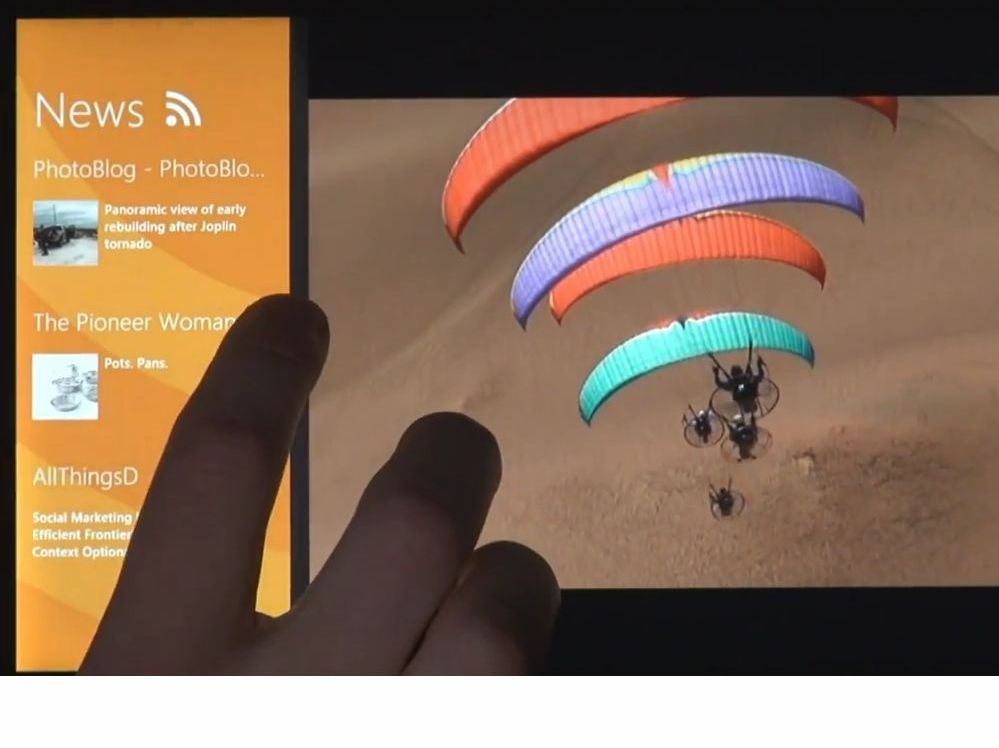Windows 8 tablets: boom or bust for Microsoft?

Microsoft has big plans for Windows 8. It's designed to scale from titchy tablets to supersized screens, and it promises to be all things to all men.
I hope it delivers, because if Windows 8 is a dud then Microsoft's stuffed.
Ed Bott has been tracking the market share numbers, and he's spotted something that should make Steve Ballmer - and Microsoft's shareholders - nervous: Microsoft's share of web browsing has dropped below 90%. Some of that's due to OS X, but most of it is down to iOS and Android.
The figures are the canary in the Windows coal mine: mobile is beginning to eat the PC. The numbers aren't huge yet, but they're growing at an extraordinary rate: iPhone browsing share has gone from 0.53% to 1.23% in a year, and the iPad has gone from zero to nearly one percent. That means it's getting the same share as desktop Linux already.
It turns out that I'm not the only one who's doing more and more computing on mobile devices. Everybody's at it, and the trend is just going to continue. It won't be long before even the dumbest phone is a smartphone and good Android tablets are as cheap as chips. That's bad news for a firm who's largely reliant on selling copies of Windows and Office.
Can Microsoft compete?
As Mary Branscombe points out, Microsoft is going in a different direction from the rest of the industry: where others are making their smartphone OSes more feature-packed, Microsoft is taking a desktop OS and working out how to make it mobile.
Sign up for breaking news, reviews, opinion, top tech deals, and more.
The move to ARM processors is part of that - Windows 8 will run on ARM, although you'll need ARM-specific applications - and Windows 8 tablets will be capable of running software such as Excel.
There are two questions here: do people want that? And if they do, can Microsoft pull it off?
The answers to both questions are far from certain. A big part of tablets' appeal is their simplicity: I'd rather run something stripped-down and speedy like IA Writer on a tablet than a full-fat version of Microsoft Word, a program that famously had to redesign its UI because most users weren't aware of, let alone using, most of its features. I worry that Microsoft isn't thinking "how do we reinvent document creation and editing on tablets?", but "how can we shove Office into it?"
Then again, Microsoft employs some incredibly smart people. They've made Tablet PCs, and they'll be aware that Android and iOS tablets are a completely different ballgame.
They'll no doubt be aware of things like the Asus Eee Transformer and Motorola Atrix too, devices that morph from tablet or phone into pseudo-laptops when it's time to get serious. A Windows that does apps and Office could do amazing things in that environment.
The second question, whether Microsoft can pull it off, is the big one. As Mary points out, the to-do list is hefty: there's the Metro-style interface, Kinect and voice recognition, touch control, support for multiple form factors, different kinds of PC - business machines, tablets, Media Centers - new technologies such as refracting "wedge" screens... Microsoft doesn't just have to make that work, but it has to tell the world that it works too.
If this were an Xbox game, it'd be the boss fight to end all boss fights. If Microsoft gets it wrong, it's Game Over.
-----------------------------------------------------------------------------------------------------

Contributor
Writer, broadcaster, musician and kitchen gadget obsessive Carrie Marshall has been writing about tech since 1998, contributing sage advice and odd opinions to all kinds of magazines and websites as well as writing more than twenty books. Her latest, a love letter to music titled Small Town Joy, is on sale now. She is the singer in spectacularly obscure Glaswegian rock band Unquiet Mind.